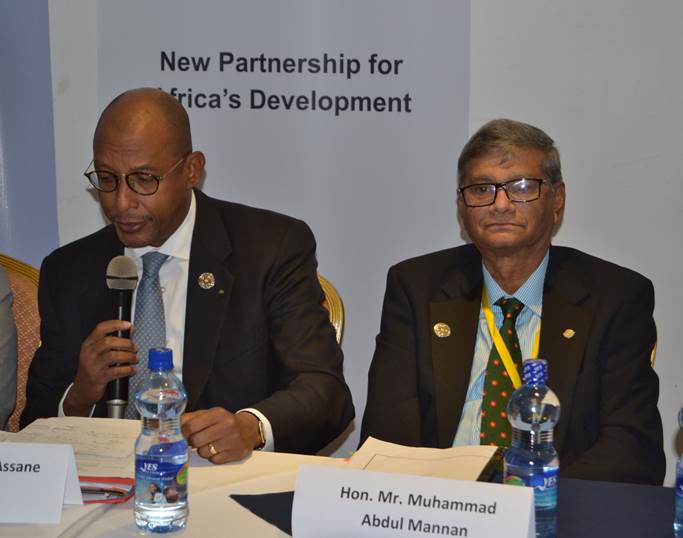Regional organisations/platforms missing link between Post-2015 Agenda and countries

July 15, 2015 - “Most of Africa’s development challenges do not have optimum national solutions, but regional solutions,” CEO of the New Partnership for Africa’s Development (NEPAD) Agency, Dr. Ibrahim Mayaki, noted during a side-event on Monday at the Third Financing for Development Conference in Addis Ababa, Ethiopia.
The event organised by the NEPAD Agency, Government of Bangladesh, UN Development Programme (UNDP) and held under the auspices of the Africa Platform for Development Effectiveness (APDev) aimed to address the missing link between the proposed Post-2015 Development Agenda and the implementation of national development priorities.
Dr. Mayaki emphasised that Africa’s Regional Economic Communities (RECs) already have a wealth of experience in mobilising resources, creating common markets and boosting intra-African trade. Strong regional cooperation and “coherency of national, regional and continental plans” would be necessary to effectively finance and implement the post-2015 development agenda, he said.
The CEO highlighted that many African economies are small, thus, often rely on regional benefits for economic growth and development. He cited the examples of the Programme for Infrastructure Development in Africa (PIDA), with the main aim to build mutually beneficially infrastructure, and the Africa50 Fund as a specialised financial tool to address specific market challenges for financing these projects.
Achieving the Sustainable Development Goals (SDGs) would also require new partnerships that would place stronger focus on South-South Cooperation. Regional Platforms such APDev could scale up proven approaches and knowledge sharing among and between developing countries, Dr Mayaki noted.

CEO Dr Ibrahim Mayaki with Bangladesh Minister of Planning, Muhammad Mannan
The side-event showcased how development partners, governments, and regional organisations are already working together to help align financing mechanisms with national development goals. It highlighted approaches such as Development Finance Assessments, which provide planning and finance ministries with data and analysis on the changing trends in development finance, and allowed discussion of how regional platforms can play a role in the future implementation of the Addis Ababa Accord.
These platforms such as the Bangladesh-led Asia Pacific Development Effectiveness Facility (AP-DEF), the Pacific Islands Forum Secretariat (PIFS), and NEPAD’s Africa Platform for Development Effectiveness (APDev) can ensure that country innovations and good practices on managing finance can be shared across countries. They can also help highlight barriers and constraints at country level which can in turn inform monitoring and implementation of international commitment, such as the post-2015 development agenda.
Source: NEPAD
